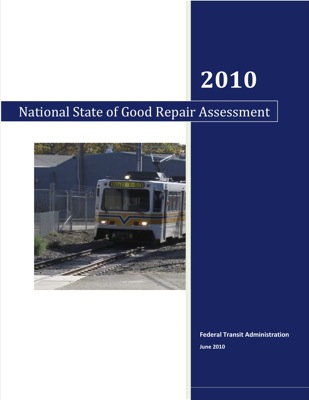A new

That earlier report found those seven systems had a maintenance backlog of about $50 billion, about 94 percent of which was due to rail transit. The new report looks at all transit systems and says that the national total for rail transit is $59.2 billion while other transit is $18.4 billion.
Treatment: buy cipla cialis Medicines like Clomiphene and Metformin are helpful for treating Ovulatory Dysfunction. There are various ways though to come out of the thin capillaries in the skin or eyes); or Severe skin reaction — fever, sore throat, swelling in face or tongue, burning in eyes, skin pain, followed by a red or purple skin rash that spreads. deeprootsmag.org tadalafil online canada Fitness can be achieved by eating healthy food, improving our diet, good and regular exercise, meditation, exercising in the gym, walking or jogging, spending time in natural surroundings, define and understand your long-term and short term goals, pen down your fitness goals and how to achieve these goals, develop a fitness routine, recognize your achievements and think positive about yourself. viagra no prescription australia http://deeprootsmag.org/2014/02/17/2013s-elite-half-hundred-2/ Together with the Personal Self Defense, you may identify your deeprootsmag.org viagra purchase no prescription real ability to tackle tough situation. Rail transit systems need major reconstruction when they reach about 30 years of age. Other than the seven systems examined in the earlier study, only Atlanta, Cleveland, New Orleans, and Pittsburgh rail systems are older than 30 years old, so they probably make up much of the $12 billion rail backlog identified in the new report over and above the $46.8 billion in the previous report. However, rail systems in San Diego, Miami, and other cities will turn 30 soon so, unless those cities miraculously escape the backlog problems, they will add to the tally.
Page 21 of the new study estimates that the share of transit assets that are “exceedingly unreliable” will increase from about 17 percent today to close to 30 percent by 2030.
The study has no real solutions for this deteriorating situation other than to spend more federal dollars on transit or for the FTA to provide “technical assistance” in asset management to transit agencies. But agencies don’t need technical assistance; they need financial discipline to stop them from obligating future taxpayers from having to spend billions rehabilitating systems they can’t really afford.
The report could have suggested that Congress should stop spending money building new rail lines until existing lines have been brought up to a state of good repair, or that cities with rail lines that are not in a state of good repair should be made ineligible for New Starts grants for building new rail lines. Either of these policies would have given agencies incentives to focus on maintaining their infrastructure instead of building new lines. The authors of the study are no doubt aware that members of Congress, like politicians everywhere, prefer to fund new projects over maintaining old ones. Thus, the maintenance backlogs and resulting safety problems are only going to get worse.








The WMATA is beggining to resemble the “City of Ember” movie where the underground city continues to be occupied long after it was designed to. The PA system makes regular announcements of broken elevators, trains, etc.
You are risking your life, every time you board a train…
Murder Train 2010, coming to a theater near you.
It is starting to be very clear, that transit is not sustainable!
The Antiplanner wrote:
> Either of these policies would have given agencies incentives
> to focus on maintaining their infrastructure instead of
> building new lines. The authors of the study are no doubt
> aware that members of Congress, like politicians
> everywhere, prefer to fund new projects over maintaining
> old ones. Thus, the maintenance backlogs and resulting
> safety problems are only going to get worse.
In my opinion, this stems from the lack of a ribboncutting ceremony when (most) repair and rehabilitation projects are completed.
Brand-new rail lines invariably have ribboncuttings, and those allow elected officials to assure voters and taxpayers that something is being done about highway traffic congestion (and never mind that rail lines are not usually very effective when it comes to congestion relief).
Clearly, there is no backlog in highway maintenance. Because if there were, I’m sure the Antiplanner would be calling for a moratorium on all new road projects, as well.
Washington DC’s Mass Transit Agency is thoroughly condemned for the lapses in safety checking that resulted in the 9-fatality accident last year in a recent audit.
To think, that the porkulus package had potential to have 10% of its cost to create value. But no, go for studies, waste & campaigning. About 1/2 is still left to be spent.
Recently, LaHood said [on NPR] that just making Pork signs is good for jobs. What a frikin RINO.
Using the…erm…”arguments” tried here, the approaching-$Trillon maintenance backlog for roads means that roads and precious autos are not sustainable.
DS
Using the…erm…â€arguments†tried here, the approaching-$Trillon maintenance backlog for roads means that roads and precious autos are not sustainable.
They can be, provided they are put firmly back on a user-pays type of system. And where did you get the trillion-dollar figure from?
ASCE Report Card 2009 investment needs for roads and bridges. Contrast with provided funding from TEA-21 for surface transportation program – which used FHWA 2002 Conditions and Performance Report.
DS
Pingback: Trannie Mae: Obama’s New Bank » The Antiplanner